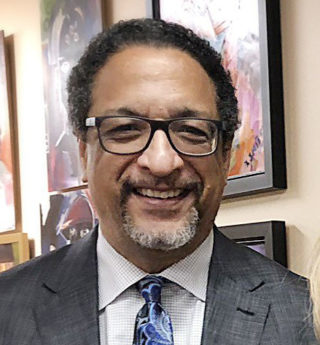HOME | ABOUT US | MEDIA KIT | CONTACT US | INQUIRE
HOME | ABOUT US | MEDIA KIT | CONTACT US | INQUIRE
 “I think lot of innovation will come out of this,” says Clyde McQueen, CEO of the Full Employment Council in Kansas City. Until then, business will continue to feel unprecedented pain, he says, but he cautions against taking short-term actions that could allow competitors to snag highly-valued employees. McQueen chatted with Ingram’s about how the COVID-19 crisis offers lessons for all organizations, including his own, about the challenges of pivoting quickly to set up a remote work force, and about the federal relief package for small business. You can read the full exchange with him here.
“I think lot of innovation will come out of this,” says Clyde McQueen, CEO of the Full Employment Council in Kansas City. Until then, business will continue to feel unprecedented pain, he says, but he cautions against taking short-term actions that could allow competitors to snag highly-valued employees. McQueen chatted with Ingram’s about how the COVID-19 crisis offers lessons for all organizations, including his own, about the challenges of pivoting quickly to set up a remote work force, and about the federal relief package for small business. You can read the full exchange with him here.
Q: You’re organization is always on the front lines of the unemployment battle, but does this health crisis have you working with one hand tied behind your back?
A: We’ve gone virtual with all of our offices, instituted drop boxes for documents, using DocuSign online for documents signatures, setting up employees to work remotely from home, distancing others who have to be in the office, and putting glass between employees and clients, and having them face-to face that way, but talking on their cell phones.
Q. What were some of your take-aways from that, as a business leader?
A: We had to flip our business model in five working days. On the technology side, everybody was looking for brand new equipment, laptops and the like, but TGS does our IT and suggested using refurbished, so we got it all in 10 days, as opposed to six weeks. The thing about remote work is, you have to make sure you have safe protocols for remote workers—at times like these, the hackers are at the extreme. We tried to do all that ourselves, but weren’t able to figure it out.
Q: Anything from that experience that you can pass along to other companies or business executives still wrestling with this?
A. We knew we were going to have some kinks trying to do this in five days. Don’t try to get it perfect off the bat; just find the kink and work it out, then find the next one. One we found out was, our phone system greeting was too long—people were getting frustrated and calling the state. We had to shorten it. You flip the switch to invert a model that’s been the same for almost 33 years—that doesn’t happen overnight. You also have to make sure, with the unbelievable volume of information out there, that your employees are all reading off the same page, with the same protocols.
Q: Do you sense panic layoffs are taking place with companies, the way panic buying overtook some consumers?
A. What we first noticed was a lot of employers with the larger layoffs were in the bootheel area, and places like Jefferson City. That really didn’t start here in a major way until last week, and accelerated since then, and its up around 400 or 500 percent.
Q. What are your expectations from here?
A. I think a lot of business innovation will come out of this. I think everybody recognizes this will pass. But for employers, there’s still a priority to defend your work force. A lot of companies don’t want to lose those people, and if you leave them out there, there are still some companies during this time that are going to be looking for talent. A lot of companies are doing all they can to be innovative and retain their people the best they can. Smaller business will have a bigger challenge, but the relief from Washington is pretty impressive; it’s not just going to